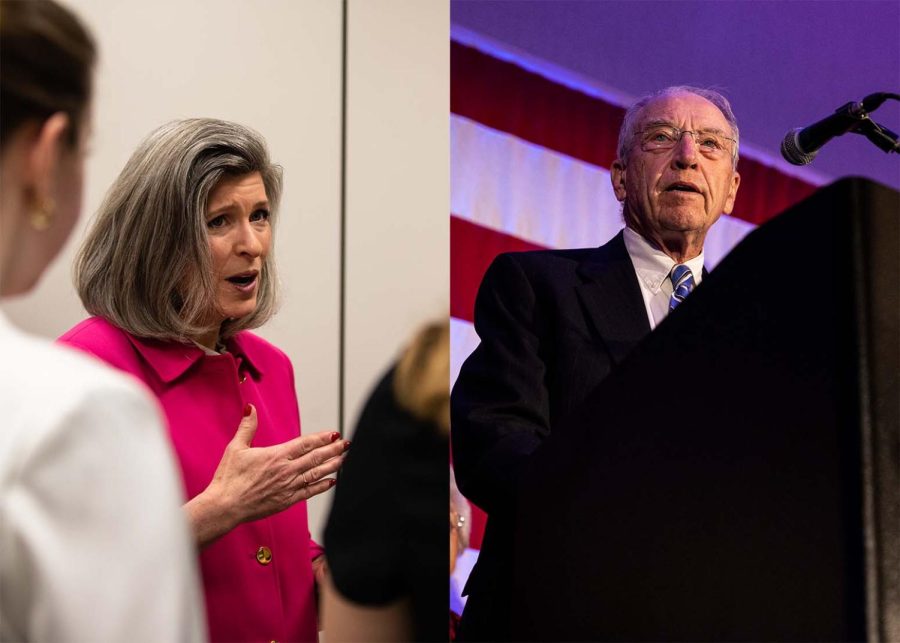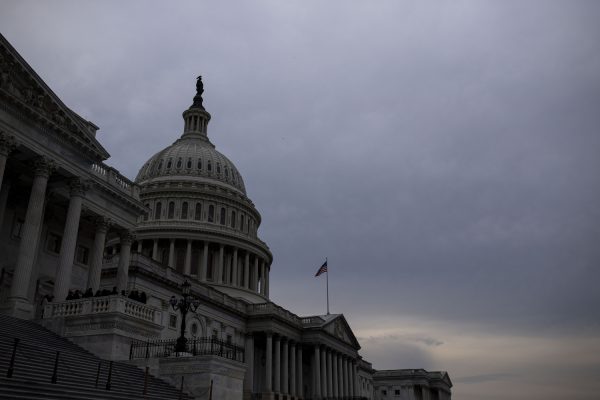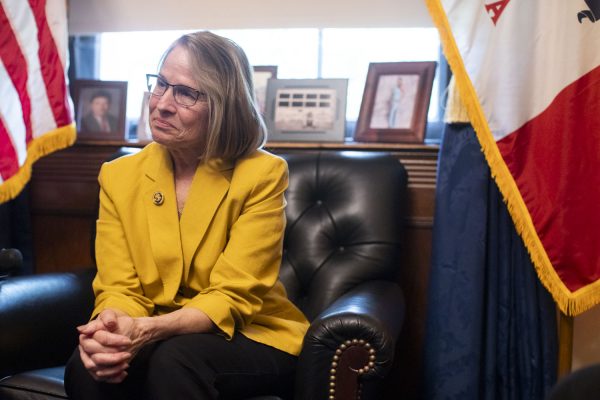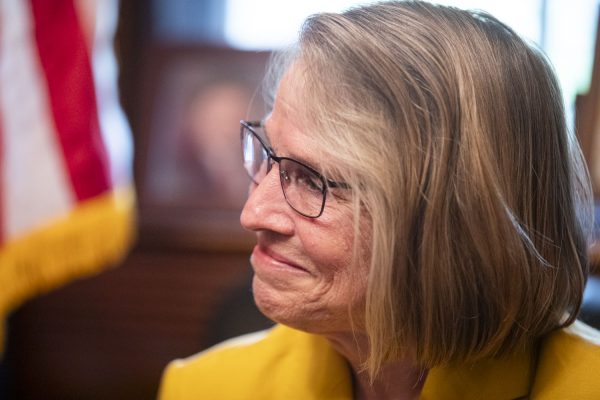Grassley, Ernst split on same-sex marriage vote
Grassley said he voted no on the bill because it could put religious liberty at risk. Ernst disagreed and voted for the measure.
November 17, 2022
U.S. Sen. Chuck Grassley voted against a bill codifying same-sex and interracial marriages into federal law. Grassley was joined by 36 other senators in opposing the measure, while 62 senators in a bipartisan coalition, including Sen. Joni Ernst, R-Iowa, voted to move the bill to a final floor vote and debate.
The bill, known as the Respect for Marriage Act, would add statutory protections for same-sex and interracial marriage into law, codifying the U.S. Supreme Court decisions that made these rights part of common law.
The court upheld the right to same-sex marriage in Obergefell v. Hodges under the equal protection clause in the fourteenth amendment and upheld the right to interracial marriage in Loving v. Virginia under the same clause.
Activists raised worries about the status of these rights after the Supreme Court overturned Roe v. Wade in their Dobbs v. Jackson decision in June, which ended common law protections for access to abortion care.
Justice Clarence Thomas wrote a concurring opinion to the Dobbs v. Jackson decision arguing for the court to revisit cases using the precedent founded on the same interpretation of the fourteenth amendment used to establish abortion rights in Roe V. Wade.
Grassley said these rights are not under scrutiny and this legislation would add unnecessary protections for rights that aren’t under attack. Grassley added that the bill could result in a loss of religious liberty for those who oppose same-sex marriage on religious grounds.
“While failing to adopt this bill would have no practical impact on the status quo, passing it would put people with certain sincere religious beliefs at greater legal risk without providing sufficient opportunities to defend themselves,” Grassley wrote in a statement on Wednesday.
Ernst disagreed with Grassley on the effects of religious liberty.
“After hearing directly from Iowans, and closely reviewing the amended language, I believe this bill protects religious freedoms and will simply maintain the status quo in Iowa,” Ernst said in a statement following the vote, according to the Des Moines Register.
Grassley said his vote wasn’t against protections for same-sex or interracial marriage, but rather his concerns over the possible implications for religious liberties.
“My vote against this bill is not about opposing the recognition of same-sex or interracial marriages; it’s about defending the religious liberty enshrined in our founding documents,” Grassley said. “This legislation is simply unnecessary. No one seriously thinks Obergefell is going to be overturned so we don’t need legislation. I’ve heard from multitudes of Iowans who are fearful of freedom of religion lawsuits.”
The U.S. House passed a similar version of the bill in July and would have to pass the Senate version of the bill before heading to the president’s desk. The Senate still needs an official final vote on the bill before it heads to the house.
In July, Iowa Democratic Rep. Cindy Axne and Republican Reps. Ashley Hinson and Mariannette Miller-Meeks voted for the House version of the bill. Rep. Randy Feenstra, R-Iowa, voted against the bill.















